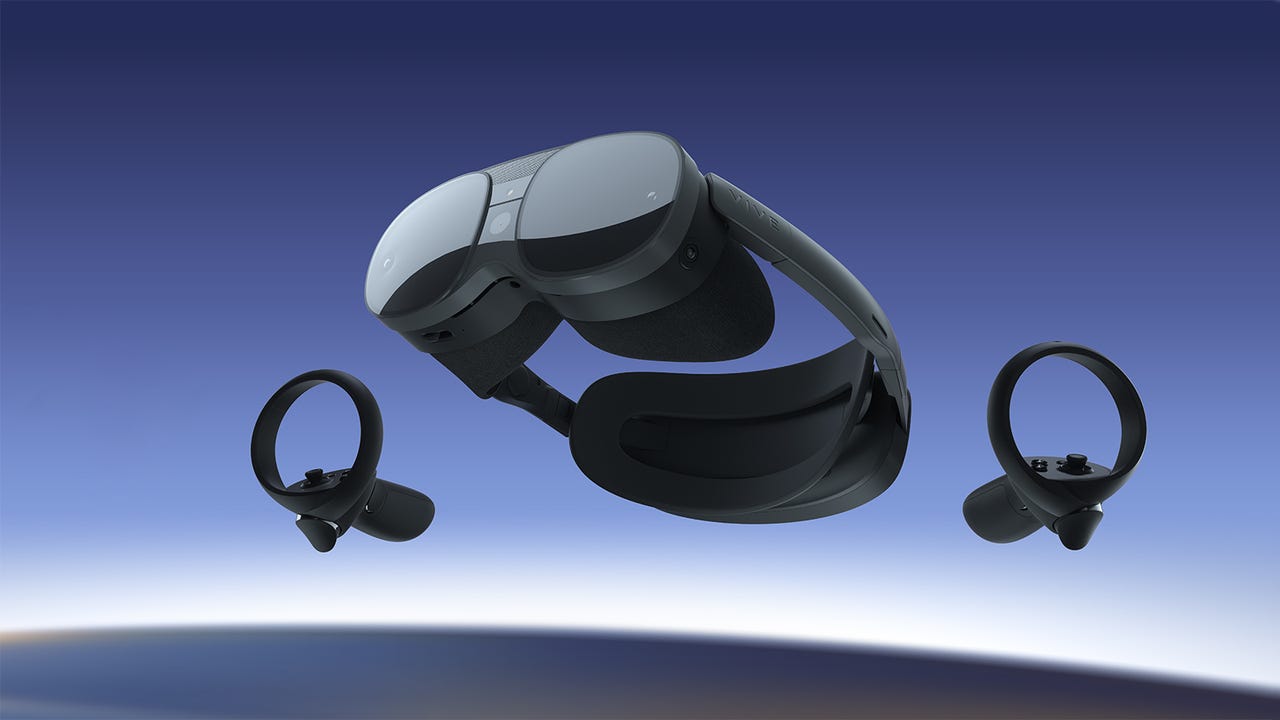'ZDNET Recommends': What exactly does it mean?
ZDNET's recommendations are based on many hours of testing, research, and comparison shopping. We gather data from the best available sources, including vendor and retailer listings as well as other relevant and independent reviews sites. And we pore over customer reviews to find out what matters to real people who already own and use the products and services we’re assessing.
When you click through from our site to a retailer and buy a product or service, we may earn affiliate commissions. This helps support our work, but does not affect what we cover or how, and it does not affect the price you pay. Neither ZDNET nor the author are compensated for these independent reviews. Indeed, we follow strict guidelines that ensure our editorial content is never influenced by advertisers.
ZDNET's editorial team writes on behalf of you, our reader. Our goal is to deliver the most accurate information and the most knowledgeable advice possible in order to help you make smarter buying decisions on tech gear and a wide array of products and services. Our editors thoroughly review and fact-check every article to ensure that our content meets the highest standards. If we have made an error or published misleading information, we will correct or clarify the article. If you see inaccuracies in our content, please report the mistake via this form.
Should you pre-order HTC's VIVE XR Elite headset?


HTC's VIVE XR Elite with its included controllers, and its "Battery Cradle" installed.
Now that CES 2023 has wrapped and we've digested the massive news that came out of the event, it's time to start figuring out which of the new devices at the show deserve our hard-earned cash. For VR and AR lovers, the top consideration is likely HTC's VIVE XR Elite.
Also: CES 2023 was huge for AR and VR. Here's everything important that was announced
The company made its bid to once again dominate consumer VR by coming in $400 below the cost of the Meta Quest Pro. HTC also made it clear that, unlike its aforementioned competitor, it is very much designed for you and all consumers interested in premium XR experiences.
But, at $1,100, it's no small purchase for the vast majority of us. That's why we're here to help you decide if you should preorder the new headset, opt for a competing model, or just wait and see what's coming later this year.
Should I preorder HTC's VIVE XR Elite headset?
To get right down to it, with the shortest answer possible: If you want the most versatile headset yet announced and you can afford the $1,100 price tag, then yes, you should pre-order. If you're hoping for a bit more depth in your answer, read on...
Why should I spend $1,100 on the HTC VIVE XR Elite when I can buy the [insert other headset here] for less?
Meta's Quest 2 is still the headset to beat right now, even if it is over two years at this point.
It's always worth checking your alternatives when buying expensive devices, or even inexpensive ones. In this case, there are many alternatives, but only a handful are mainstream enough to discuss here. I'll cover each of those briefly below.
The Index is a fully tethered PCVR headset, which means you'll need a beefy gaming PC to use it with.
Valve Index - $999 for the full kit
The Valve Index is the closest to the price of the HTC VIVE XR Elite and might be the biggest loser on this list because of that. While you can save $100 by purchasing the Valve Index, you'll be getting a fully tethered headset that requires the installation of two base stations for tracking, and a high-end gaming PC to connect it to. The result is a much less user-friendly setup and usage experience, and a complete lack of the standalone use that's made the Meta Quest line so successful.
Also: The 4 best VR headsets: For gaming, the metaverse, and beyond
The Valve Index "Knuckle" controllers do allow for unique finger tracking while holding them, but the HTC Vive XR Elite has full skeletal hand tracking that works without controllers. The headset can also operate without wires, or base stations, or a PC. Ultimately, the VIVE is a more versatile, user-friendly device, but it is $100 more expensive.
The PlayStation VR2 is also fully tethered, but it relies on being connected to your PlayStation 5 rather than a PC.
PlayStation VR2 - $550. Requires PlayStation 5 (MSRP: $500+)
The comparative cost of this option depends largely on whether or not you already own a PlayStation 5. If you do, it's half the price of the VIVE. If not, it's only $50 cheaper. Of course, for that $1,050 cost, you also get a current-gen console for use in traditional gaming.
Also: Sony's PlayStation VR2 launches February 2023 for $550
The PlayStation VR2 is a huge upgrade from its first-gen counterpart, but it's still a tethered headset, meaning you'll always have a wire to deal with. You'll also be unable to source content that Sony doesn't publish to its console storefronts, unlike all of the other options we'll mention. This makes the PS VR2 somewhat less flexible and less friendly to things like independent games, sideloaded content, and user-created mods. HTC's headset supports of all of these things and offers fully wireless, self-contained operation as well as wireless PCVR gaming via Wi-Fi 6/6E.
Meta's Quest 2 is the second generation to support both wired and wireless PCVR, as well as fully self-contained, wireless VR games and apps.
Meta Quest 2 - $400+
The elephant in any room where VR/AR conversation is ongoing. While the Meta Quest 2 launched at $300, the entry-level model now costs $400, meaning you could still buy two for the cost of a single HTC VIVE XR Elite. Despite that, it probably comes the closest to the VIVE in terms of its range of functionality by supporting both fully standalone games and PCVR games running on a discrete gaming PC accessed via Oculus Air Link over Wi-Fi.
The differences that may make the VIVE XR Elite worth the premium for some people are more subtle. Things like the full-color pass-through cameras and the AR functionality they provide over the Quest 2's basic black-and-white cameras; the in-headset diopter adjustable lenses that will eliminate the need for aftermarket prescription lens inserts; and the modularity of the design, which lets you wear the headset like eyeglasses for casual use at just 240g without its eye gasket, or like a more traditional headset for serious gaming sessions at 625g with both the eye gasket and Battery Cradle installed.
Also: Prescription lens inserts for VR headsets: How to get a clearer look at the metaverse
All in all, the VIVE XR Elite is a much more versatile "all-in-one" headset, as HTC intended. It can do all of the things the Quest 2 can while being lighter, more compact, and with a larger field of view. That said, it is far more expensive, meaning the Quest 2 could still be a better option for first-time VR owners and younger gamers.
Should I wait to see what Apple and Meta have in store?
This is a trickier question to answer since neither Meta nor Apple has made their AR/VR plans for 2023 public in any way. However, we can offer an educated guess based on rumors and leaks for each company.
A supposed render of the forthcoming Quest 2 follow-ups design.
Meta
The Meta Quest Pro was targeted at enterprise customers, meaning Quest 2 owners were left waiting for a follow-up designed for them when the Quest 3 was a no-show at Meta's Connect 2022 event. The next consumer-focused Quest is heavily rumored to debut later this year. It's a safe bet it will fall somewhere between the Quest 2 and Pro in terms of specs and price. Leaks suggest it will switch to OLED pancake optics, making it thinner and lighter than the Quest 2. Pricing is more fluid, but should fall within the $400-$500 range of current Quest 2 models.
An Apple patent from filing from 2015 that attempted to use an iPhone as a VR display. That's how long we've been waiting for an actual AR/VR product from Cupertino.
Apple
Apple's plans for AR and VR are the biggest question in the industry, and have been for nearly a decade. While we know almost nothing concrete, all signs point to Apple's focus being quite different than any other industry player mentioned here.
Rumors suggest Apple's device will be less focused on VR and gaming and more focused on AR and lifestyle use. While Apple could surprise us all, the company's history suggests any AR/VR headset will be a bit like the iPhone: Good at everything in its product category, without being optimized for any single task, like gaming.
Also: Apple's VR/AR headset is coming. Here's everything we know so far
How do I pre-order?
Yes, the headset is fully usable in this configuration, which weighs about half what the Meta Quest 2 does.
If you can afford the $1,100 price point, and you've determined by now that the HTC VIVE XR Elite should be your next headset, you can pre-order the device right now at HTC's own online store. New pre-orders are currently expected to begin shipping to customers in "early March, 2023," but that timeframe may slip further into the future if a sufficient number of orders are received.